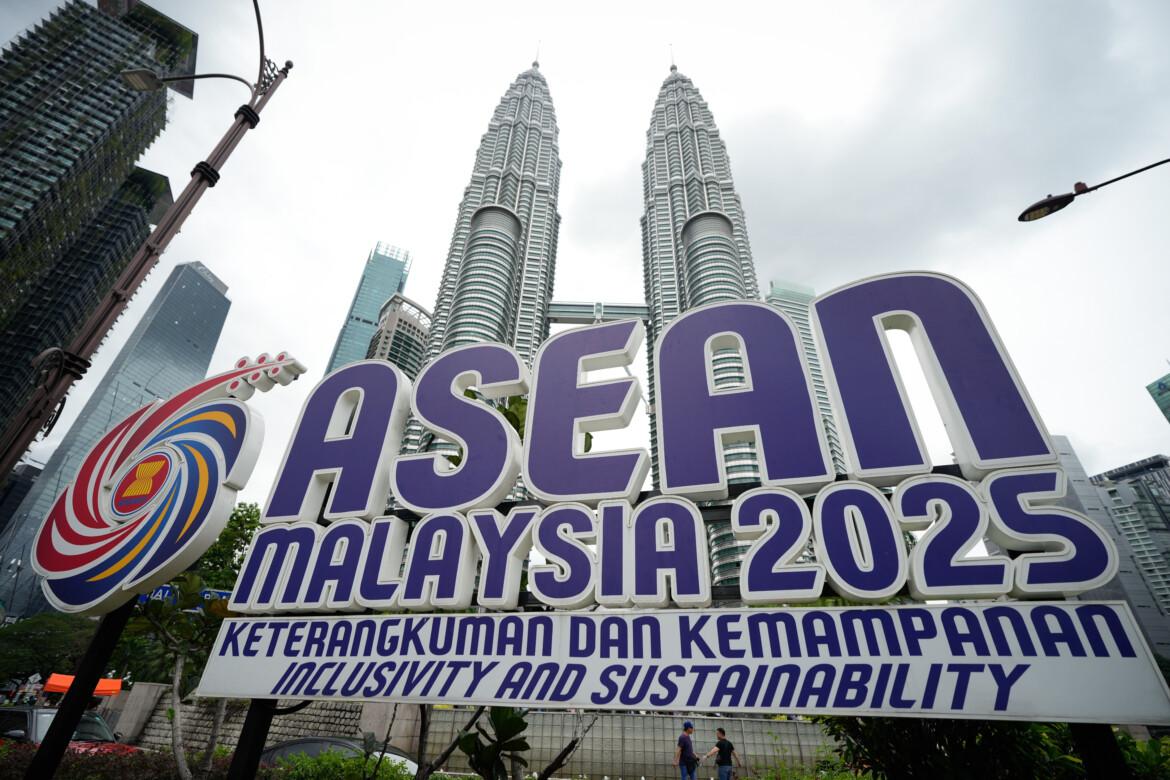China (International) Between Kuala Lumpur and Seoul, the future of China-US relations in Asia will be decided.The two powers will be asked within days to defuse the risk of an escalation in the trade conflict, although they know finding a real deal is more complicated.Also, because the new round is around the corner
Russian oil and Chinese land, that raises fears
Cold War relations between China and the United States against markets, a difficult balance between the two powers
The relationship between China and the United States World War II in the markets, the difficult balance between the two leaders
Between Kuala Lumpur and Seoul, the future of China-US relations is being decided in Asia.In a few days, they called on the two powers to reduce the risks of an escalation of the trade conflict, despite knowing that finding the right agreement is more than complicated.Also because ahead of a new round of negotiations in Malaysia and the long-awaited meeting between Xi Jinping and Donald Trump in South Korea, the problems to be solved will increase rather than decrease.
The latest source of contention is the import of Russian oil, on which Washington previously imposed punitive duties only for India.After months of threats and warnings, the White House withdrew the "long arm" of secondary sanctions against all foreign companies and entities that do business with Russian oil giants Rosneft and Lukoil.
Beijing countered: "We oppose the use of Russia-related issues as a pretext to impose trade sanctions on China," the State Department announced two days ago.However, as Reuters revealed, the four largest state oil companies have chosen the cautious path, suspending purchases of Russian oil by sea.The reason is the same that led in the spring of 2024 many major Chinese banks to freeze or cancel several hundred million dollars worth of financial transactions with Russia: fear of secondary sanctions.You don't want to risk being excluded from international financial or insurance services, as well as trading energy derivatives and refined products such as lubricants and industrial polymers.
However, a partial reprieve should not be confused with concessions made by Beijing to the United States.In contrast to India, which is close to reaching a trade deal with the White House, China has made no political commitments and is unlikely to make them.Moreover, the suspension does not cover all imports of Russian oil, but only a part of it.The four companies directly import between 250,000 and 500,000 barrels per day of Moscow by sea, totaling about 2.3 million.About 900,000 barrels come through pipelines and should not be exposed to direct impacts from sanctions, according to Reuters.The rest comes by sea, but through independent refineries that are difficult to control.
As happened with Iranian oil, it is reasonable to think that China can protect the big companies and increase the difficulty of buying through middlemen.In recent years, the so-called"shadow shipping" system, unofficially, imports from Iran should continue or even increase.Of course, at least in the near term, this will affect Russia's income and Beijing's import costs, which will affect Beijing's import costs, which have higher prices than other suppliers.Moscow will have to buy and sell compared to the likes.
The energy issue also threatens to create friction between the United States and Japan.On Tuesday, Trump will meet with new Prime Minister Sanai Takaichi in Tokyo and ask her to stop buying Russian liquefied natural gas.A complicated request to fulfill, given that supply through the Sakhalin-2 project accounts for 10% of all Japanese imports.
Of course, the secondary sanctions movement will force China to accelerate the appreciation of the renminbi rather than the dollar in trade, an issue that also concerns President Trump.Tomorrow, Chinese Vice Premier He Ling and Treasury Secretary Scott Besant are expected to lay the groundwork for détente when they meet in Kuala Lumpur, where President Trump also arrives for an Asia summit.Washington is pushing for more soybean purchases.New regulations on rare earth shipments (which China, the main importer, plans to phase out by 2025) are also rolling back.In return, the Chinese government wants to not only cancel the new 100% tariffs announced on November 1st, but also (and eventually) ease export restrictions on technology software and remove some barriers to investment.We also talk.
It is very difficult to find a square.The solution, which is always temporary, must include another extension to the task force.China does not intend to remove the state licensing system for exports of major electronics and defense equipment, much of which will ensure accuracy and speed of licensing, and not for military use.
In this way, Beijing maintains the possibility of changing the situation depending on how the relationship progresses in the future.
The new latent wave will be officially released on Thursday, October 30th, and there are probably a hundred people who want to wish the meeting a success.Achieving full mutual stick-to-stick resistance is necessary, at least for the time being.
Mema council
Articles in the archive to delve deeper into this topic.








